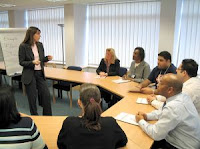Whether you use sophisticated metrics or simply ask participants, it is important to gain feedback on mentoring to evaluate whether the relationships worked, made a difference and contributed worthwhile organisational outcomes.
Plan to gather both qualitative and quantitative data before, during and after the mentoring.
Success Indicators – identify what you can measure pre and post mentoring to gauge benefits;
Early Follow-up – check in with people soon after the program launch to ensure that they have made contact and begun the mentoring relationship;
Monitor – stay in touch, build two-way communication, identify any potential problems and resolve them sooner, rather than later;
Mid-point Review – get the group together, face-to-face or via webinar. Workshop what’s working well and what could improve. Help them create strategies to gain the most value from their mentoring
Finalé – a final group session gives closure to participants. Make it special and acknowledge their contribution. This is the time to recognise their achievements and take feedback for improvement for future programs. Questionnaires can be used to elicit their evaluation and quantify qualitative input.
Post-program – schedule review of longer-term success indicators at appropriate intervals. Mentoring will show immediate benefits but the greatest gains come from the enduring effect of mentoring.
Mentoring as a one-off event may be indelible for individuals but mentoring imbedded in the culture is the ultimate measure of success. If the benefits of mentoring are to be perpetuated, it is what you do after your mentoring program that will determine if mentoring works.

